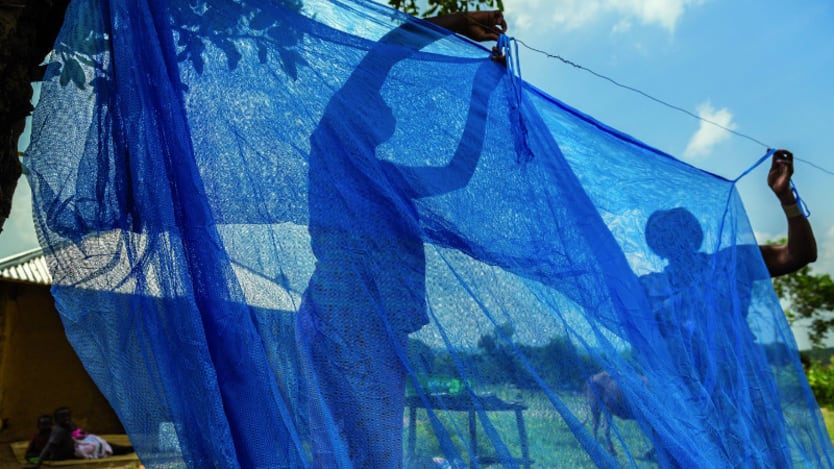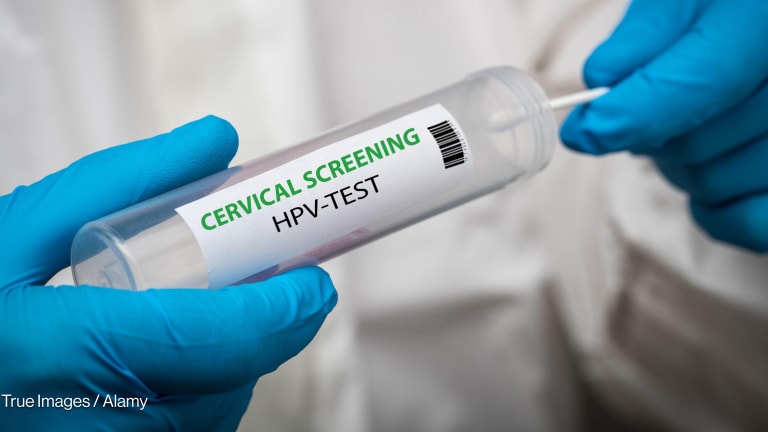Opinion: African experts warn big changes needed to eliminate malaria

African malaria experts fear that the World Health Organization’s 2030 malaria targets may not be achieved unless big changes occur in funding and delivery. The three of us have worked in very different roles with malaria experts all over Africa. Much of what we have heard informally in recent years is now confirmed in a major new study, Malaria Futures for Africa, or MalaFa. Launched on April 17 in London, it reveals what malaria experts in Africa actually think about progress and challenges toward malaria elimination. They believe that malaria can be beaten, but it will require significant political will as well as continued research on scientific breakthroughs and an emphasis on using both old and new tools.
Some of the opinions in the study may sound surprising because we are not used to African voices guiding discussions about health strategy. There is a story that an international organization recently held a meeting in London about a particular African health issue. When one participant asked why no Africans were present, she was told that it was very difficult to get visas for Africans to come to Europe. In reality, the meeting may or may not have happened, but the story is believed because too often the discussion is about Africa, but it is not led by Africans.
MalaFa gathers, for the first time in many years, the views of African policymakers and experts about the future of malaria on the continent. It highlights concerns that many will find uncomfortable and challenging, but the leaders who were interviewed were clear about what needs to be done to meet the WHO targets, which include reducing global malaria deaths and incidence by at least 90 percent, and eliminating the disease in at least 35 countries by 2030.
The Malaria Futures for Africa study
This was conducted by independent policy researchers and commissioned by Novartis, the health care company that launched fixed-dose artemisinin-based combination therapies and provides them without profit to malaria-endemic countries. The report is based on interviews with 68 senior individuals — including ministers of health, senior civil servants, academics, and NGOs — in 14 sub-Saharan African countries.
On the money
Funding, respondents told us, is inadequate and unsustainable. Few countries have the dedicated budget lines and policy units to make malaria elimination a top national priority. Many countries need to spend more of their own resources and donors need to make sure they respond to country health care needs and integrate with national plans.
Many reported positive experiences working with donors, but said that they should give endemic countries more freedom over malaria policy and resource allocation. This would enable African governments to make decisions on how best to implement malaria prevention, diagnosis, and treatment in their own settings. It would also help break the stop-start cycle of donor funding reported in some countries that saw programs initiated and halted based on the changing priorities of aid-giving nations.

On the tools and research
Often, headlines focus on new interventions and breakthroughs. We will indeed need new insecticides and treatments, but the experts said that as much emphasis should be placed on improving the delivery of existing and new interventions — an area that is currently underfunded. Some thought that over half of all research spending should be devoted to operational research, including work on using tools more efficiently and cost effectively. Many respondents felt that expanding access to specially-formulated artemisinin-based combination therapies, or ACTs, for children, those affected most severely by malaria, would improve both treatment adherence and effectiveness in young patients.
Over three quarters of respondents were alarmed about the potential impact of resistance on current prevention methods and treatments. Resistance to insecticides is already widely documented in Africa. Resistance to some artemisinin-containing treatments is emerging in Southeast Asia — historically, resistance to medicines has spread from Asia to Africa. Respondents thought that it might spread faster in the next decade because of increased trade and travel between the two regions. Some even thought that resistance to ACTs might develop separately in Africa rather than be imported. Because of this, all MalaFa respondents said there was an urgent need to continue investing in scientific research to discover and develop new tools to help achieve elimination and eventual eradication.
Each of us has seen what African governments and health workers have achieved since the turn of the century: Malaria deaths are down by 60 percent. That is, of course, still too much, but many parents now celebrate the life events of their children instead of grieving for them.
“We have won many battles, but we have not yet won the war. To win the fight, African malaria leaders need the freedom to respond fast, drawing on local knowledge.”
—We all know families who have come through malaria but, sadly, each of us also knows parents who have lost a child to the disease: About 285 000 children died of malaria before their fifth birthday in Africa in 2016 alone. We worry — as do most of the experts interviewed for MalaFa — that progress could stall. According to the 2017 World Malaria Report, there were 216 million cases of malaria in 2016, up from 211 million cases in 2015. The estimated number of malaria deaths stood at 445,000 in 2016. Ninety percent of malaria cases and over 90 percent of malaria deaths occurred in sub-Saharan Africa.
We have won many battles, but we have not yet won the war. To win the fight, African malaria leaders need the freedom to respond fast, drawing on local knowledge. They want new tools, but also solid research on how to use them best, alongside the interventions they already have. Most of all, they need enough resources and political will to be able to deploy those resources where they are needed most.
We are launching this report at a unique juncture, with the global malaria community gathering in Dakar and London this month. We need to take advantage of these African insights and learnings as we discuss how to accelerate progress toward malaria elimination. With the knowledge of Africans who have devoted their lives to this fight, malaria can die, and African children can live.
Search for articles
Most Read
- 1
- 2
- 3
- 4
- 5










